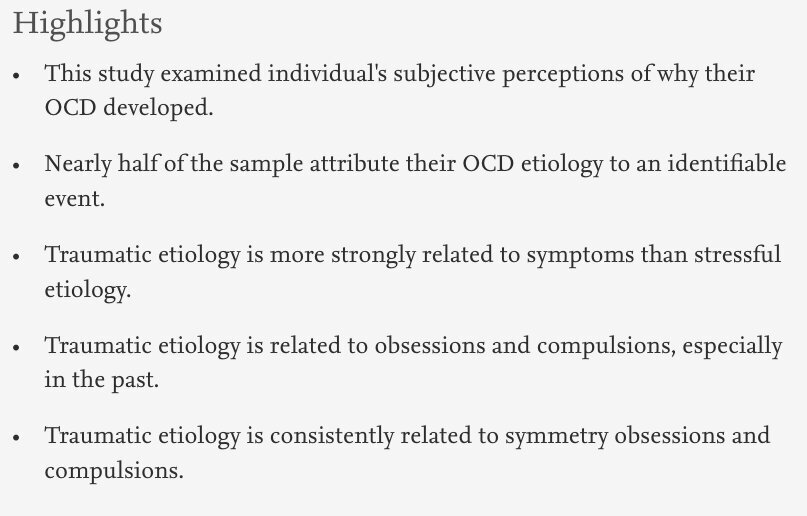For me, I engage in OC type behaviors because they are adaptive and lessen psychological distress. But I am not normally an OCD type - at least that I am aware of. Are there two types of OCD? One that is actually caused by a chemical disturbance in the brain and another caused by abuse, stress or trauma?
As I've gone further and further into the issue of childhood trauma in therapy I've found I am in more psychological pain (therapist warned me of this) and as a result I engage in behaviors (nothing destructive - compulsive cleaning, lights off, perfectionism, etc) that retrospectively I know are meant to distract me from the pain I am feeling.
Will this fade as I learn to understand the pain and slowly let go of the hurt or will these behaviors continue? My guess is, at least in my case, the behaviors will subside as the pain slowly subsides. (something I am looking forward to) If it's brain chemistry problem then is the theory that the trauma actually caused the chemistry change and if so, as I change my attitude and let go of the pain will my natural brain chemistry return or am I stuck with these obsessions and compulsions?
What is the current theory? (nature vs. nurture)
As I've gone further and further into the issue of childhood trauma in therapy I've found I am in more psychological pain (therapist warned me of this) and as a result I engage in behaviors (nothing destructive - compulsive cleaning, lights off, perfectionism, etc) that retrospectively I know are meant to distract me from the pain I am feeling.
Will this fade as I learn to understand the pain and slowly let go of the hurt or will these behaviors continue? My guess is, at least in my case, the behaviors will subside as the pain slowly subsides. (something I am looking forward to) If it's brain chemistry problem then is the theory that the trauma actually caused the chemistry change and if so, as I change my attitude and let go of the pain will my natural brain chemistry return or am I stuck with these obsessions and compulsions?
What is the current theory? (nature vs. nurture)



